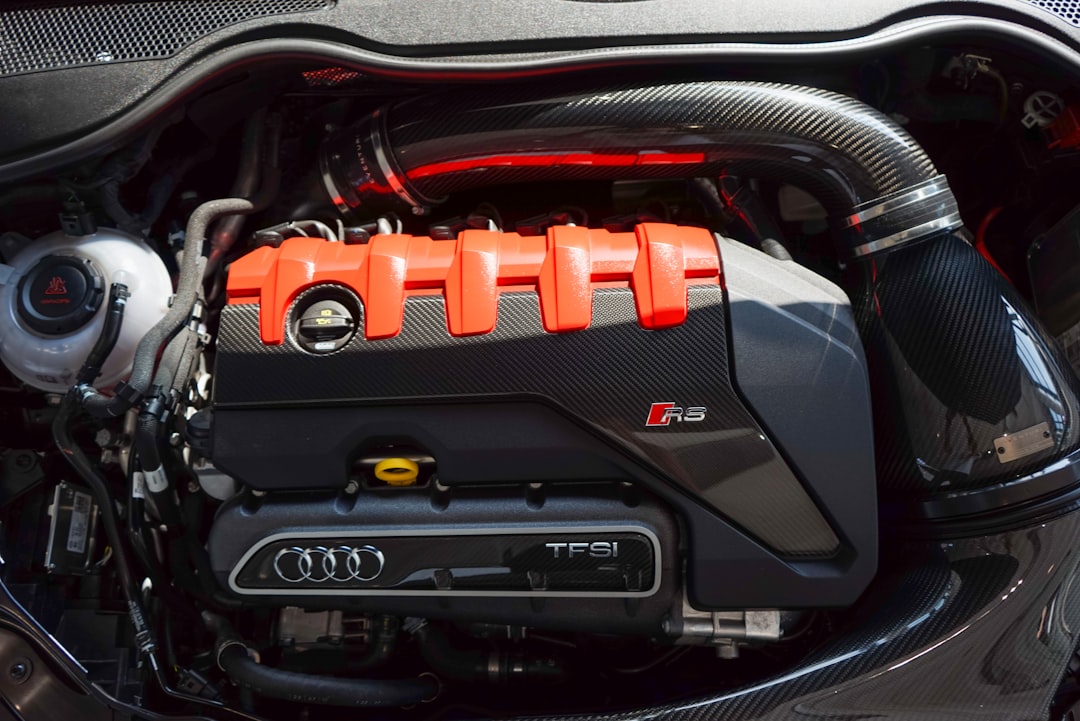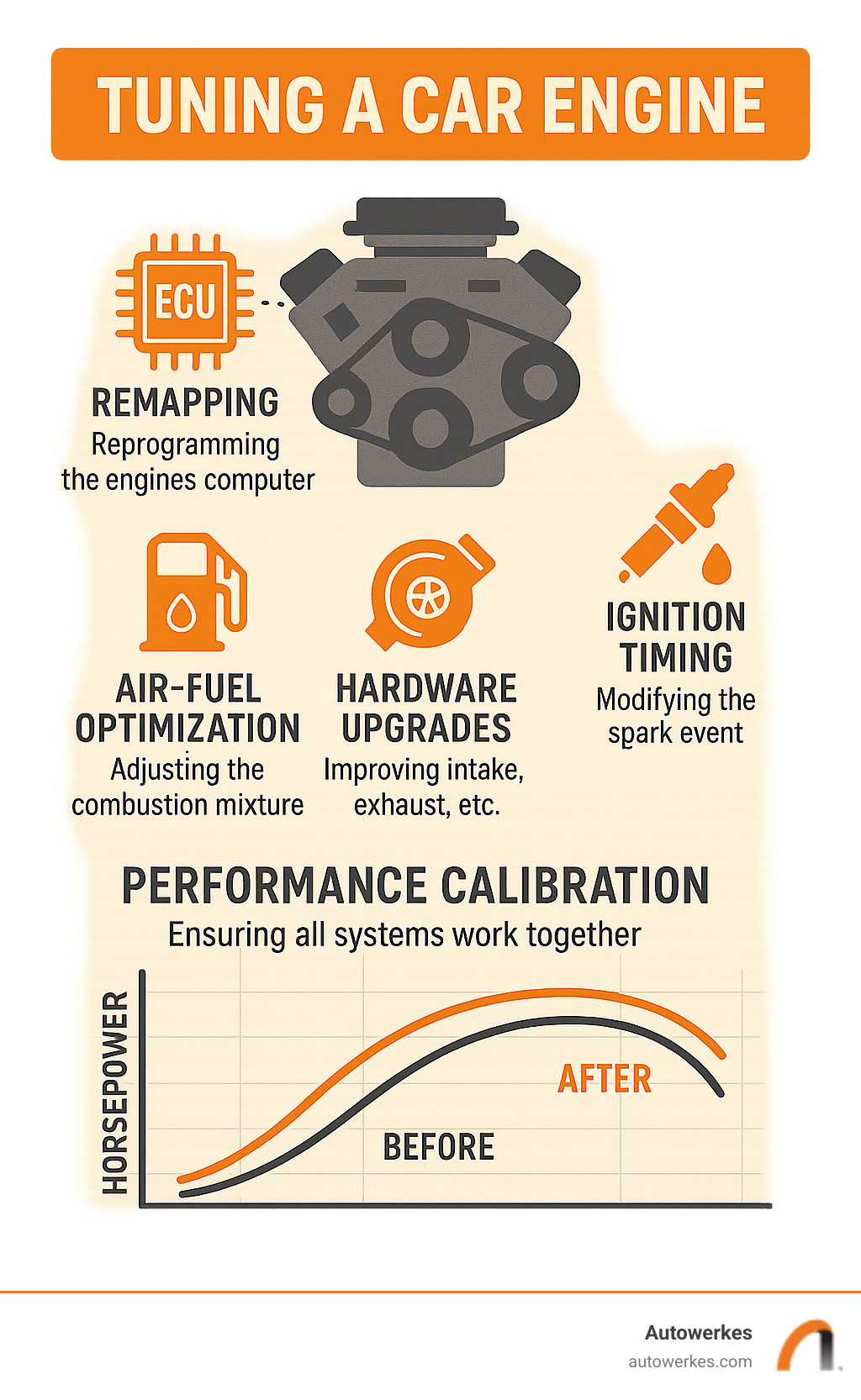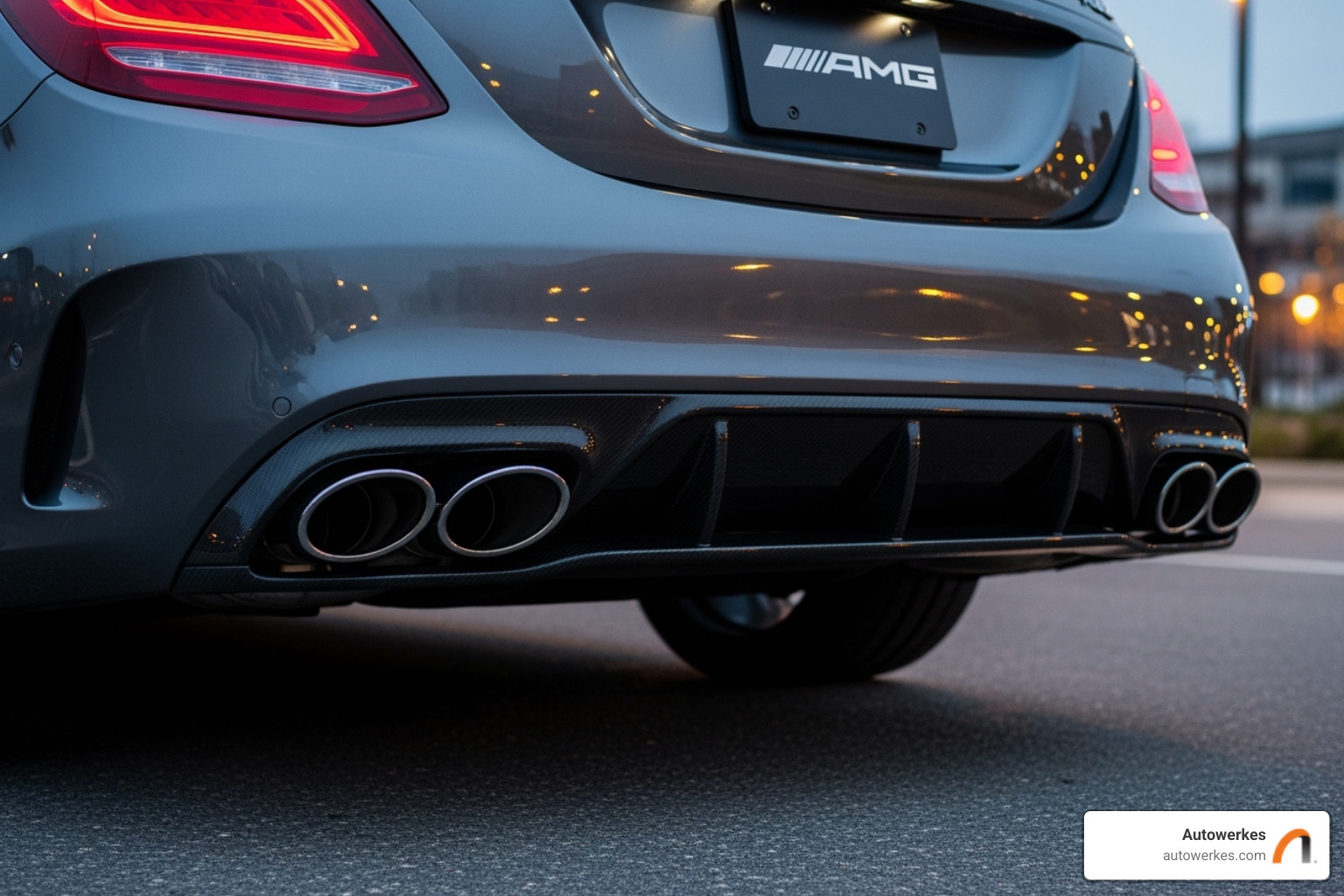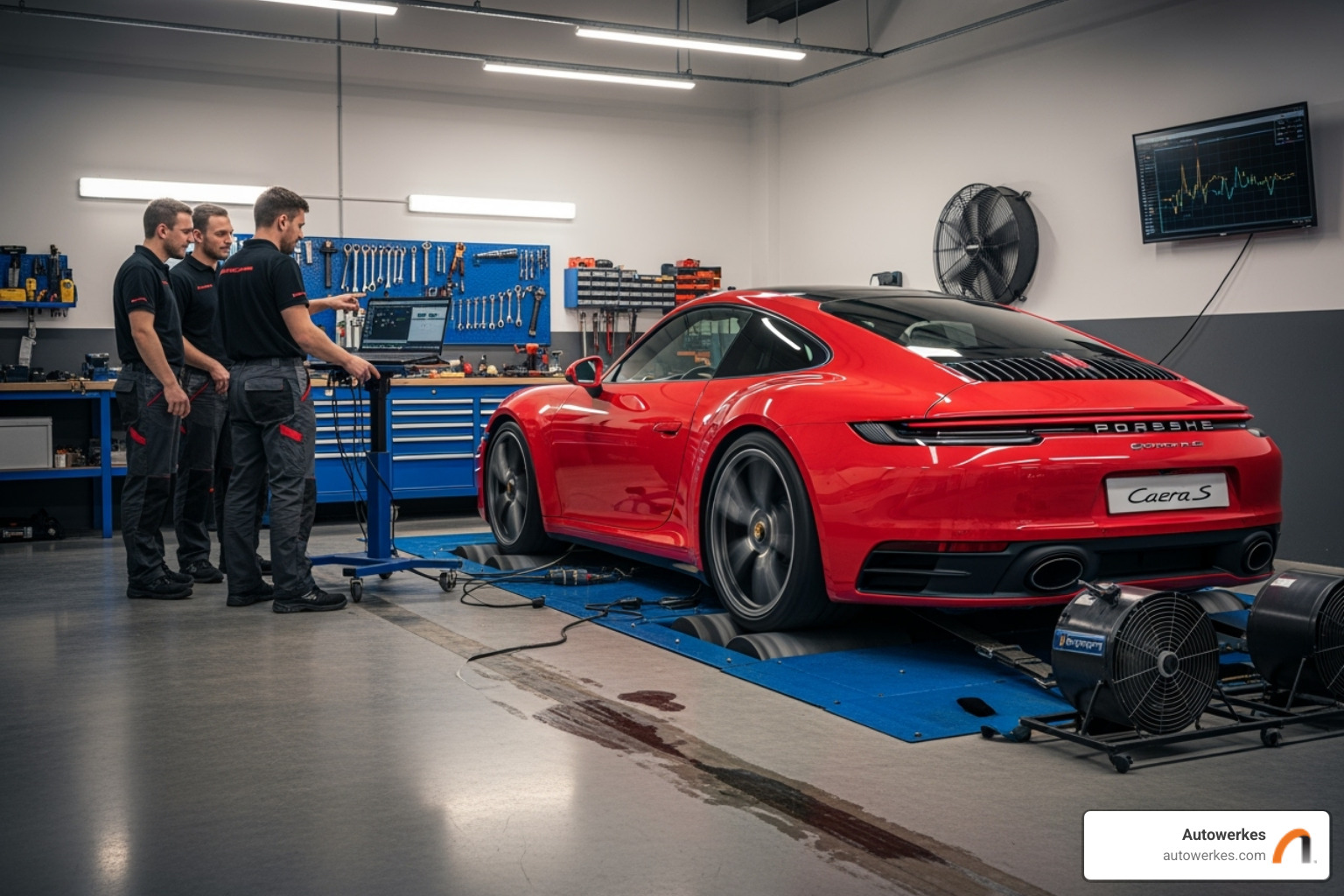From Basics to Boost: A Comprehensive Look at Engine Tuning

What Engine Tuning Really Means for Your Performance Car
Tuning a car engine is the process of adjusting your vehicle's computer and components to open up more power, improve efficiency, or improve performance beyond factory settings. It’s like giving your engine a software and hardware upgrade to reach its true potential.
Modern engine tuning involves ECU remapping, optimizing the air-fuel mixture, adjusting ignition timing, and integrating hardware upgrades like better intake and exhaust systems. Unlike the simple 'tune-ups' of the past, today's tuning optimizes fuel and ignition to allow your engine to make more power.
Why don't manufacturers tune engines for maximum performance from the factory? They must meet emissions standards, ensure reliability across different climates and fuel qualities, and manage production costs. They also tune engines conservatively to offer different power levels across their model lineup.
The results can be impressive. A standard turbocharged car can see gains of 20-30% in horsepower with a proper tune. For Porsche, BMW, and Mercedes-Benz owners, tuning isn't just about raw power. It's about releaseing the sophisticated engineering that these manufacturers built into your vehicle but kept restrained for broader market appeal.

The Core of Tuning a Car Engine: Components and Principles
This section explains the technical heart of tuning, from the engine's computer to the physical parts that get upgraded. It's where we dive into the "how" and "why" of making your car perform at its peak.
The ECU's Role: The Brains Behind the Brawn
At the heart of modern tuning a car engine is the Engine Control Unit (ECU). Think of it as your car's brain, a computer managing ignition timing, the air-fuel mix, and turbocharger pressure. Manufacturers often use different software maps for the same engine to create different models, leaving room for tuners to optimize these settings.
This process, known as ECU remapping or chip tuning, involves adjusting the software within this computer. Typically done via the On-Board Diagnostics (OBD-II) port, specialized tools allow us to rewrite the ECU's software. We make precise adjustments to parameters controlling fuel delivery and ignition timing, using data-logging to refine the tune. This is far more sophisticated than old-school tune-ups, allowing us to adapt the engine's behavior for maximum horsepower or better fuel efficiency.
For more information about our expert services and how we can precisely adjust your vehicle's ECU, visit our services page.
Fundamental Principles for Tuning a Car Engine
To understand tuning a car engine, we must grasp the core principles we manipulate to achieve performance gains.
- Air-Fuel Mixture: This is the ratio of air to fuel entering the cylinders. The ideal (stoichiometric) ratio is about 14.7:1. For maximum power, we aim for a slightly richer mixture (e.g., 12.5:1), which helps cool the engine and ensure complete combustion.
- Ignition Timing: This is when the spark plug fires. Firing at the optimal moment creates maximum pressure during the power stroke. Tuning involves advancing the timing for more power while avoiding engine knock (pre-detonation), which can be destructive.
- Volumetric Efficiency (VE): This measures how effectively an engine fills its cylinders with air. Higher VE means more air, and thus more power. We adjust the ECU's VE tables to ensure precise fuel delivery across all RPMs for smoother power.
The type of engine also impacts tuning potential. Naturally aspirated (NA) engines see modest gains from ECU tuning alone, as they are limited by atmospheric pressure. In contrast, turbocharged or boostd engines have much greater potential. Increasing boost pressure via an ECU remap forces more air into the engine, leading to substantial horsepower and torque gains.
Key Components and Advanced Techniques
While ECU remapping is a cornerstone of tuning a car engine, hardware upgrades are often needed to open up a vehicle's full potential, especially for brands like Porsche, BMW, and Mercedes-Benz.

- Cold Air Intakes: These systems draw in cooler, denser air, which contains more oxygen. This leads to more efficient combustion, increased horsepower, and better throttle response.
- Performance Exhausts: High-flow exhaust systems reduce back pressure, allowing the engine to "breathe" more freely. This improves efficiency, power, and gives a performance vehicle an incredible sound.
- Turbochargers or Boostrs: Adding forced induction is a major step that forces more air into the engine, dramatically increasing power. A custom tune is essential to ensure the engine operates safely with these components.
- Supporting Modifications: To handle the extra power, tuning often extends to other areas. Lightweighting improves the power-to-weight ratio for better acceleration and handling. Adaptive suspension systems can be recalibrated for a firmer, more responsive ride. Adaptive suspension Adaptive suspension, often known as dynamic or active suspension, adjusts the shock absorbers’ settings on the fly to provide optimal ride and handling performance.Unlike traditional suspension systems, adaptive suspensions can automatically change their response based on driving conditions, road qu... Finally, aerodynamic adjustments like spoilers and diffusers improve high-speed stability.
To explore how these performance upgrades can transform your vehicle, visit our dedicated Performance Repair service page.
Practical Guide: Methods, Risks, and Professional Care
Now that we've explored the technical aspects of tuning a car engine, let's get practical about what this means for you and your vehicle. This is about making smart decisions to improve your driving experience while protecting your investment.
DIY vs. Professional Tuning: Weighing Your Options
Should you tune your car yourself or trust a professional? The choice depends on your experience, risk tolerance, and your vehicle's value.
DIY tuning can be rewarding, offering cost savings and a deep understanding of your vehicle. However, the learning curve is steep. A single wrong adjustment to the ECU can cause catastrophic engine damage. You'll also need to invest in specialized tools for data logging and diagnostics.
| Feature | DIY Tuning | Professional Tuning |
|---|---|---|
| Pros | - Learning experience | - Expert knowledge and experience |
| - Cost savings on labor | - Access to specialized tools (dyno, advanced software) | |
| - Deep understanding of your vehicle | - Ensured safety and reliability | |
| - Performance optimization | ||
| - Often includes a warranty on the tune | ||
| Cons | - High risk of engine damage if done incorrectly | - Higher upfront cost |
| - Significant investment in tools and software | - Less personal involvement in the process | |
| - Steep learning curve | ||
| - Potential to void warranty | ||
| - Lack of professional support/warranty |
Professional tuning offers peace of mind. For a high-performance BMW, Porsche, or Mercedes-Benz, you're working with sophisticated German engineering. Professional tuners bring years of experience, access to dynamometers for precise calibration, and an understanding of how to balance performance with reliability. Most importantly, reputable professionals stand behind their work.
Understanding the Risks, Costs, and Warranty Impact of Tuning a Car Engine
Tuning a car engine is not without risks.

- Engine Stress and Wear: Pushing your engine beyond its factory design increases stress on components like pistons, rods, and the transmission. An aggressive tune can lead to accelerated wear or even catastrophic failure. A professional finds the sweet spot where performance gains don't compromise long-term reliability.
- Legal and Safety: Some modifications, particularly those affecting emissions systems, can make your vehicle illegal for road use. Some modifications can render a vehicle illegal in states with strict testing. Always understand your local regulations.
- Warranty Implications: Any ECU modification will almost certainly void your manufacturer's warranty on the powertrain. While laws like the Magnuson-Moss Warranty Act exist, proving a modification didn't cause a failure can be difficult and costly. This is a significant trade-off, especially for luxury vehicles with comprehensive warranties.
- Cost vs. Gain: A simple ECU remap on a turbocharged engine can deliver impressive results for a modest investment. More extensive hardware upgrades cost more but can yield gains of 100+ horsepower. The goal is to ensure your investment delivers the driving experience you want without sacrificing reliability.
Maintaining Your Tuned Vehicle for Peak Performance
Once tuned, your vehicle requires more attentive care to maintain its improved performance.
- Use High-Octane Fuel: Performance tunes demand fuel with superior knock resistance. Using lower-octane fuel can cause engine knock and damage internal components.
- Use Synthetic Oil and Change it More Frequently: Tuned engines run hotter and work harder. Synthetic oil provides superior lubrication and thermal stability.
- Schedule Regular Inspections: Have a specialist monitor engine parameters and check for any issues. Early detection prevents minor problems from becoming major expenses.
Choosing the right professional is critical. For luxury vehicles like Porsche, BMW, and Mercedes-Benz, you need a shop with proven experience with luxury brands. Look for established companies with physical locations and positive customer feedback.
At Autowerkes, we understand that tuning a car engine is about enhancing the driving experience while preserving your investment's integrity. Whether you need specialized BMW Auto Repair or expert Porsche Auto Repair, our team has the knowledge to keep your tuned vehicle performing flawlessly.
The journey of engine tuning is about open uping your vehicle's hidden potential. With informed decisions and professional support, you can enjoy improved performance while maintaining the reliability that makes your luxury vehicle special.
Ready to open up your car's true potential? Contact us for expert performance repair and find out what your vehicle is really capable of.

.svg)




